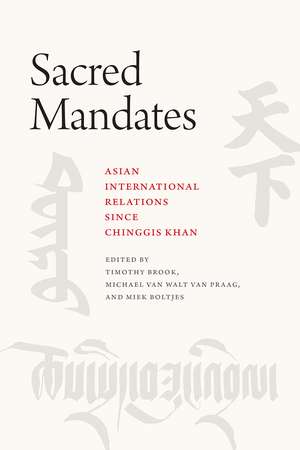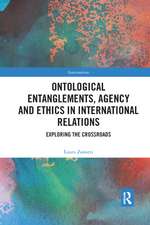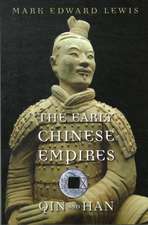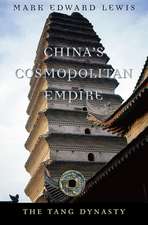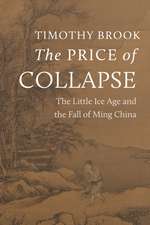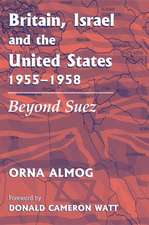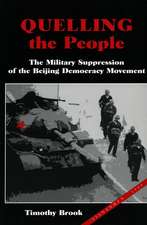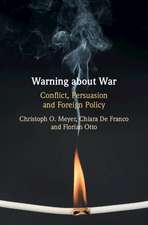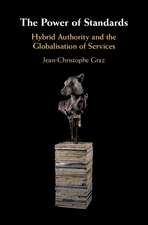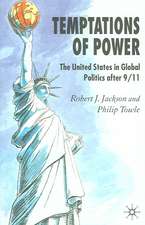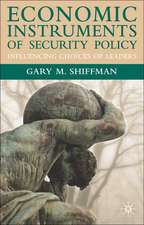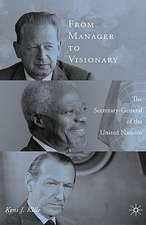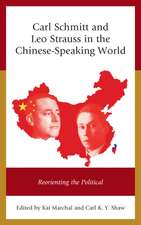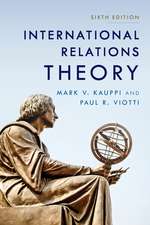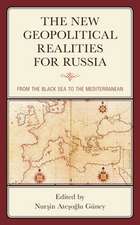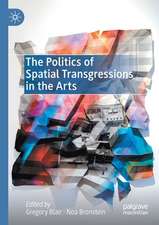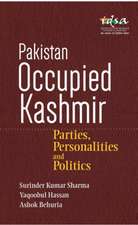Sacred Mandates: Asian International Relations since Chinggis Khan: Silk Roads
Editat de Timothy Brook, Michael van Walt van Praag, Miek Boltjesen Limba Engleză Paperback – 21 mai 2018
Contemporary discussions of international relations in Asia tend to be tethered in the present, unmoored from the historical contexts that give them meaning. Sacred Mandates, edited by Timothy Brook, Michael van Walt van Praag, and Miek Boltjes, redresses this oversight by examining the complex history of inter-polity relations in Inner and East Asia from the thirteenth century to the twentieth, in order to help us understand and develop policies to address challenges in the region today.
This book argues that understanding the diversity of past legal orders helps explain the forms of contemporary conflict, as well as the conflicting historical narratives that animate tensions. Rather than proceed sequentially by way of dynasties, the editors identify three “worlds”—Chingssid Mongol, Tibetan Buddhist, and Confucian Sinic—that represent different forms of civilization authority and legal order. This novel framework enables us to escape the modern tendency to view the international system solely as the interaction of independent states, and instead detect the effects of the complicated history at play between and within regions. Contributors from a wide range of disciplines cover a host of topics: the development of international law, sovereignty, state formation, ruler legitimacy, and imperial expansion, as well as the role of spiritual authority on state behavior, the impact of modernization, and the challenges for peace processes. The culmination of five years of collaborative research, Sacred Mandates will be the definitive historical guide to international and intrastate relations in Asia, of interest to policymakers and scholars alike, for years to come.
This book argues that understanding the diversity of past legal orders helps explain the forms of contemporary conflict, as well as the conflicting historical narratives that animate tensions. Rather than proceed sequentially by way of dynasties, the editors identify three “worlds”—Chingssid Mongol, Tibetan Buddhist, and Confucian Sinic—that represent different forms of civilization authority and legal order. This novel framework enables us to escape the modern tendency to view the international system solely as the interaction of independent states, and instead detect the effects of the complicated history at play between and within regions. Contributors from a wide range of disciplines cover a host of topics: the development of international law, sovereignty, state formation, ruler legitimacy, and imperial expansion, as well as the role of spiritual authority on state behavior, the impact of modernization, and the challenges for peace processes. The culmination of five years of collaborative research, Sacred Mandates will be the definitive historical guide to international and intrastate relations in Asia, of interest to policymakers and scholars alike, for years to come.
Preț: 283.30 lei
Nou
Puncte Express: 425
Preț estimativ în valută:
54.22€ • 56.39$ • 45.37£
54.22€ • 56.39$ • 45.37£
Carte tipărită la comandă
Livrare economică 15-29 martie
Preluare comenzi: 021 569.72.76
Specificații
ISBN-13: 9780226562766
ISBN-10: 022656276X
Pagini: 288
Dimensiuni: 152 x 229 x 20 mm
Greutate: 0.4 kg
Ediția:1
Editura: University of Chicago Press
Colecția University of Chicago Press
Seria Silk Roads
ISBN-10: 022656276X
Pagini: 288
Dimensiuni: 152 x 229 x 20 mm
Greutate: 0.4 kg
Ediția:1
Editura: University of Chicago Press
Colecția University of Chicago Press
Seria Silk Roads
Notă biografică
Timothy Brook is professor of history at the University of British Columbia. Michael van Walt van Praag is executive president of Kreddha, a conflict resolution organization, and senior fellow at the Institute for Social Sciences, University of California at Davis, an international jurist. Miek Boltjes is a mediator in intrastate conflicts and director of dialogue facilitation at Kreddha.
Cuprins
Preface
Chapter One Three Worlds; Three Bodies of International Law
The past in Asia’s present
Beyond China
Marco Polo and the protection of emissaries
International law before “international law”
Sovereignty in Asia before the modern era
The straitjacket of the modern law of nations
Beyond China
Marco Polo and the protection of emissaries
International law before “international law”
Sovereignty in Asia before the modern era
The straitjacket of the modern law of nations
Chapter Two Chinggisid Rule and the Mongol Great State
The emergence of the Chinggisid state
Lhamsuren Munkh-Erdene
Imperial allocation of fiefs and the resilience of Chinggisid law
Koichi Matsuda
Imperial subjugation of polities and extension into Tibet
Koichi Matsuda
Mongol perceptions of “China” and the Yuan dynasty
Hodong Kim
Chinese legitimation of the Mongol regime and the legacy of “unification”
Lhamsuren Munkh-Erdene
Imperial allocation of fiefs and the resilience of Chinggisid law
Koichi Matsuda
Imperial subjugation of polities and extension into Tibet
Koichi Matsuda
Mongol perceptions of “China” and the Yuan dynasty
Hodong Kim
Chinese legitimation of the Mongol regime and the legacy of “unification”
Chapter Three Interpolity Relations and the Tribute System of Ming China
Rituals of hierarchy
The tribute system and regime legitimacy
Power and the use of force
Yuan-kang Wang
Civilizational rhetoric and the obfuscation of power politics
Geoff Wade
Convergence and conflict: Dai Viet in the Sinic order
Liam Kelley
Reproduction of the tribute system
The tribute system and regime legitimacy
Power and the use of force
Yuan-kang Wang
Civilizational rhetoric and the obfuscation of power politics
Geoff Wade
Convergence and conflict: Dai Viet in the Sinic order
Liam Kelley
Reproduction of the tribute system
Chapter Four The Tibetan Buddhist World
The symbiosis of spiritual and temporal authority
Rule by relationship
Mongol pilgrimages and the transfer of wealth to Tibet
Dalizhabu
State building in the Himalayas
John Ardussi
Tibetan-Manchu relations
Imperial directives in the language of chö-yön
Matthew Kapstein
Rule by relationship
Mongol pilgrimages and the transfer of wealth to Tibet
Dalizhabu
State building in the Himalayas
John Ardussi
Tibetan-Manchu relations
Imperial directives in the language of chö-yön
Matthew Kapstein
Chapter Five The Manchu Great State
State formation and legitimation
Nicola Di Cosmo
Relations with the Mongols
Extension of control over the Mongols
Hiroki Oka
Relations with Tibet
Etiquette and the communication of power relations
Nobuaki Murakami
Manchu positioning in relation to the Chinese civilizational world
Guest ritual and Qing international relations
Pamela Crossley
Nicola Di Cosmo
Relations with the Mongols
Extension of control over the Mongols
Hiroki Oka
Relations with Tibet
Etiquette and the communication of power relations
Nobuaki Murakami
Manchu positioning in relation to the Chinese civilizational world
Guest ritual and Qing international relations
Pamela Crossley
Chapter Six Transitions to the Modern State System
The new paradigm of international relations
Japan’s quest for a place in the new world order
Shogo Suzuki
Korea’s transitions and the impotence of modern law
Kirk Larsen
From mandala to modernity: The breakdown of imperial orders
Alex McKay
Japan’s quest for a place in the new world order
Shogo Suzuki
Korea’s transitions and the impotence of modern law
Kirk Larsen
From mandala to modernity: The breakdown of imperial orders
Alex McKay
Chapter Seven The Presence of the Past
Conflicts and the deployment of history
The great reinterpretation
History in play today
The great reinterpretation
History in play today
Authors and Contributors
Notes
Bibliography
Index
Notes
Bibliography
Index
Recenzii
“These thoughtful and readable essays explore China's relations with its neighbors and distant lands from the Mongol era to the present and challenge traditional views. They emphasize that realpolitik or pragmatic assessment of its own power and information about foreign states, peoples, or tribes, not a monolithic approach based on Confucian attitudes or, in recent times, communist ideology, shaped China's policies. Citizens and specialists on China, as well as policy makers will need to consider the well-informed and perceptive interpretations in this valuable work.”
Descriere
Contemporary discussions of international relations in Asia tend to be tethered in the present, unmoored from the historical contexts that give them meaning. Sacred Mandates, edited by Timothy Brook, Michael van Walt van Praag, and Miek Boltjes, redresses this oversight by examining the complex history of inter-polity relations in Inner and East Asia from the thirteenth century to the twentieth, in order to help us understand and develop policies to address challenges in the region today.
This book argues that understanding the diversity of past legal orders helps explain the forms of contemporary conflict, as well as the conflicting historical narratives that animate tensions. Rather than proceed sequentially by way of dynasties, the editors identify three “worlds”—Chingssid Mongol, Tibetan Buddhist, and Confucian Sinic—that represent different forms of civilization authority and legal order. This novel framework enables us to escape the modern tendency to view the international system solely as the interaction of independent states, and instead detect the effects of the complicated history at play between and within regions. Contributors from a wide range of disciplines cover a host of topics: the development of international law, sovereignty, state formation, ruler legitimacy, and imperial expansion, as well as the role of spiritual authority on state behavior, the impact of modernization, and the challenges for peace processes. The culmination of five years of collaborative research, Sacred Mandates will be the definitive historical guide to international and intrastate relations in Asia, of interest to policymakers and scholars alike, for years to come.
This book argues that understanding the diversity of past legal orders helps explain the forms of contemporary conflict, as well as the conflicting historical narratives that animate tensions. Rather than proceed sequentially by way of dynasties, the editors identify three “worlds”—Chingssid Mongol, Tibetan Buddhist, and Confucian Sinic—that represent different forms of civilization authority and legal order. This novel framework enables us to escape the modern tendency to view the international system solely as the interaction of independent states, and instead detect the effects of the complicated history at play between and within regions. Contributors from a wide range of disciplines cover a host of topics: the development of international law, sovereignty, state formation, ruler legitimacy, and imperial expansion, as well as the role of spiritual authority on state behavior, the impact of modernization, and the challenges for peace processes. The culmination of five years of collaborative research, Sacred Mandates will be the definitive historical guide to international and intrastate relations in Asia, of interest to policymakers and scholars alike, for years to come.
